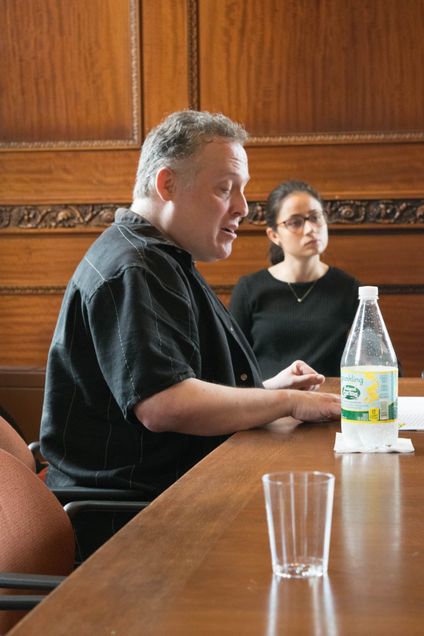Beyond Sartre and Adorno: Jean Améry’s Radical Questioning of Jewish Identity and Philosophy in the Wake of the Shoah
What the Shoah has left philosophy with is a failed transcendence. The writings of philosopher Jean Améry in response to his experiences of the Holocaust do not focus on ideology, nor do they focus on the incomprehensible theological meaning behind this destruction. Rather, they focus intensely on the issue of identity. In our second BUJS Forum of the fall 2016 semester, Dr. Jeffrey Bernstein (Philosophy, College of the Holy Cross) led us through a riveting discussion of Jean Améry and his contributions to the question of Jewish identity after the Holocaust.
The quotes of Jean Améry’s that Dr. Bernstein used throughout the presentation were from a highly embodied and visceral perspective. Speaking about what it means to be a Jew, Améry wrote that, “For me, being a Jew means feeling the tragedy of yesterday as an inner oppression.” He then goes on to directly point to his body and writes that, “On my left forearm I bear the Auschwitz number; it reads more briefly than the Pentateuch or the Talmud and yet provides more thorough information.” With poignancy and depth, Dr. Bernstein addressed how radical this statement is when considered in parallel to Deuteronomy 6:5-9 (Sh’ma Y’Israel) – one of the most important passages to Jewish tradition which directly asks Jews to bind G-d’s instructions “ as a sign upon your hand and let them serve as a symbol on your forehead.” Améry inverts this relation and instead points to the stark reality that being Jewish is being inscribed with a punishment, and one that is marked for death.
Dr. Bernstein continued to explain that in Améry’s view, not every Jew is capable of thinking out the relationship between Jewish identity and the historical event of the Shoah. It thus can no longer be a question of tradition, but of grappling with a negative identity. This negative identity, Dr. Bernstein argued, goes much deeper than Jean Paul Sartre’s definition of a Jew in his 1946 book, Anti-Semite and Jew, in which he states that a Jew exists only because the Anti-Semite invents him. Rather, Améry drew closely the concepts of identity and dignity to assert how fate is taken upon oneself as a choice for a Jew. And this choice comes with the decision to revolt against the loss of dignity in a world of indifference, despite any historical distance that exists between the Jew and the Shoah. Following the talk, Dr. Bernstein’s presentation served as a unique source of reflection for the highly engaged audience on the inexhaustible lessons of history for the current state of world affairs.
You can view more images from the event at our Facebook.
